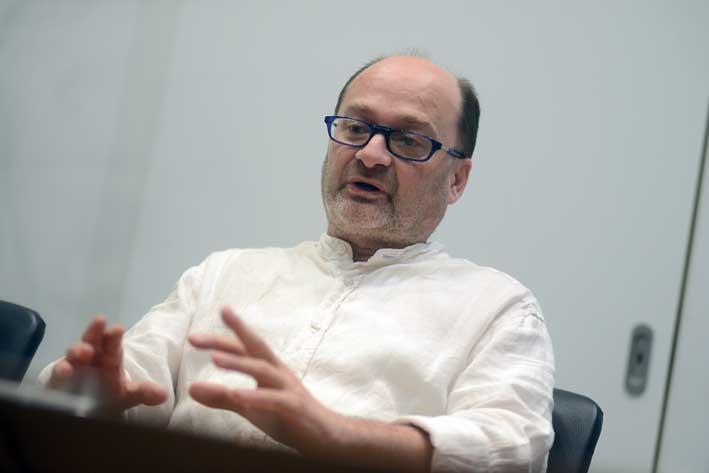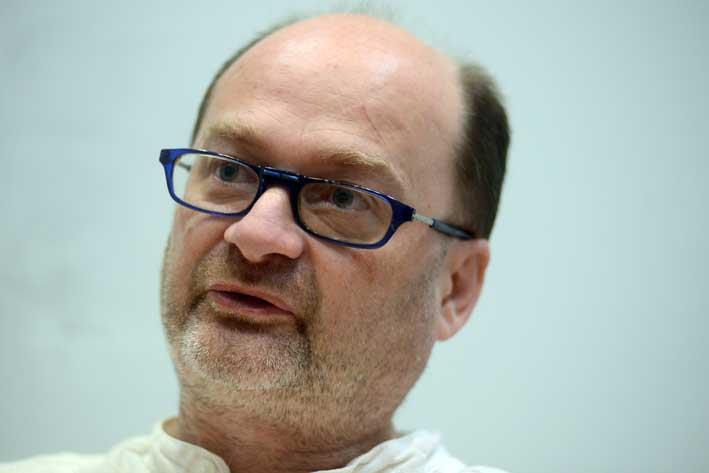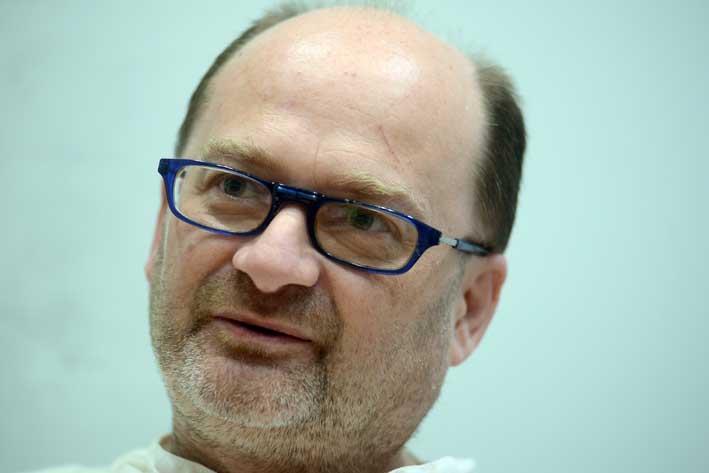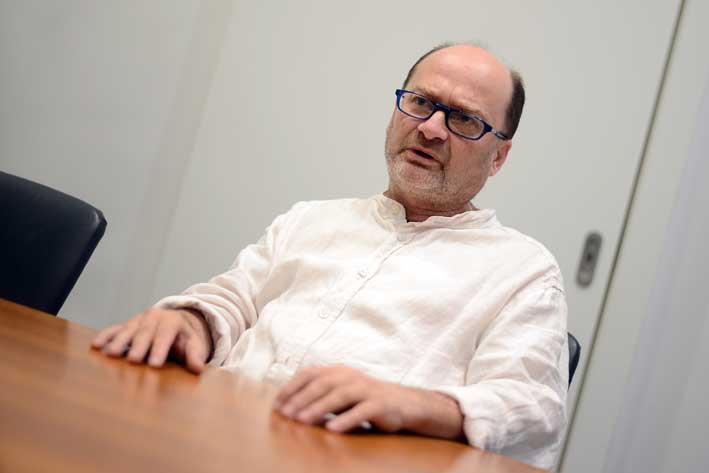Pension reform is a process and one can see the impact of decisions taken today over the long term, David Spiteri Gingell, adviser to the Social Policy Minister, told The Malta Independent in an interview.
“When we talk about the sustainability of pensions, one must correlate that with the level of adequacy required. The technical teams I chaired over the years, had proposed to government that in determining adequacy for pensions, it should stand for the provision of dignity in retirement. So from a policy perspective, pensions are there to stop the retired persons from falling into poverty. What it will not do is bridge the gap in income you may have enjoyed while in employment and the quality of life you enjoyed through that”.
“When we started the pension reform process back in 2004, the situation was dire. A report from the World Bank had stressed that if no changes were carried out, the system would collapse. In 2004, the average pension was around 60% of the average wage. It was projected back then that in a situation of no change, the average pension would drop to around 16% of the average wage.

The first report, which was the result of a pension working group he chaired, recommended to government what was at the time called the World Bank model for change, which basically looked at pensions not just purely at what a state pension provides, but also looked at flanking policies - such as complementing state pensions with other incomes, increasing active participation etc.

Because state pensions are part of a package paid for through the National Insurance, which also pays for generational support such a pensions for invalidity and widows for example, it is based on risk pooling. Back then, the strategy group had also proposed voluntary and mandatory pensions. “The contribution I pay is not accumulated for me, it’s accumulated for the entire pool. Mandatory pensions and voluntary pensions would have been a pension you would be paying just for yourself. So why mandatory? At the time, mandatory was the model in use to compel people to save. Basically, scientific research shows that people don’t think long term, so if you don’t incentivise or sanction them, they won't save”.
“The majority of fundamental reforms for State pensions in 2004 were accepted. We increased the retirement age from 61 to 65 and increased the number of years one must work to receive a full pension from 30 to 40. Sustainability was also linked to the benchmark that a pension would allow a person to live through retirement adequately”.

Asked whether he believes it is fair for a person who has worked his entire life, not to have a pension which allows him to really enjoy retirement, he believes the question should be inverted. “The State has no obligation, in my opinion, to guarantee a way of life in retirement beyond what is necessary to allow pensioners to live well and with dignity. By this, I mean that the reliance on the State, in my personal opinion, to be the be all and end all is a mistake. It is not correct that the State should guarantee a way of life that allows you to bridge as closely as possible when in retirement, unless you pay for it. We don’t. We only pay 10% on the maximum pension income. It is you, therefore, who has the obligation to prepare, plan, save and build the required income across your lifetime. The State has an obligation to support you and ensure you live well, but no obligation to support you in order to enjoy a quality of life for which you should be self-responsible for”.

“When we talk about retirement, it is important to remember that the State supports a person beyond just the pension. We have, thank God, free medical care, free medication for chronic conditions etc. The measures on the State pension we had recommended to the previous administration, most of which were implemented as at January 1 2007, managed to break the projected collapse of the system and reverse that projected collapse. They, however, did not go far enough to finance the level of adequacy. We sought an Average Pension Replacement Rate of 55% to average wage. The reforms projected an average replacement 45% of the average wage for a 50 year projection period. The 2007 reforms stabilised the deficit around breakeven until 2040, but thereafter it will start to degenerate. Then by 2060 the deficit in proportion of GDP goes from 1% to 6%. This was the situation prior to the change of administration”.

“In the recent strategy group (set up in 2013), and through the recommendations we proposed, we introduced a number of measures aimed at addressing the degeneration of the deficit between 2040 and 2060 in the forecast. One of the major changes we proposed is a link in the relationship between contributions and benefits across generations. We, as a group, were not of the opinion that such linking is done through a longevity index, whereby for every increase in the average lifespan, the retirement age increases. We didn’t want to go down this route as we are aware there is a difference in longevity between manual and non-manual workers, of around 4 years. Applying such a formula is not acceptable”.
“What we proposed, and government accepted, is that we increase, in proportion over time, the length of time one must pay contributions. So while a person, like me, who retires in 2030 would have to contribute for 40 years, as time moves on it starts increasing. We recommended that for those born after 1968 and over, the number of years one must contribute in order to receive a full pension increases by one year, to 41. Thereafter, according to periodic reviews, it can change as long as people are informed 15 years in advance so that people are in a position to make lifestyle adjustments”.
“This reform is significant and our projections show that the deficit as forecast to degenerate from 2040 onwards, would stabilise to 2-3% of GDP”.

No retirement age rise in foreseeable future, however rise in number of contributory years required will be introduced
Asked whether this would require a rise in the retirement age eventually, he said not in the foreseeable future. “If a person enters into the workforce at 18, a person would work for more than the required amount. If a person went into further education and undertook a Masters, entering the working life at 26, then that person would need to work until he or she reaches 67 years, beyond the retirement age. But to balance this aspect, government accepted the introduction of a credit for what we are calling human capital development. If you continue your studies, whether it’s life-long learning, or a diploma etc, government would credit your pension as though you were working, so it offsets. Thus we are not anticipating over the projected period, that the retirement age of 65 will increase”.
He stressed the importance of maintaining the adequacy of pensions at a level that reflects the purchasing value of that time. “One of the reasons why pensioners who reached pensionable age between 1979 and 2006 are facing the situation they are today, is because during that period the maximum pensionable income, that is the level of income on which you pay your contribution and on which the 2/3rds income was calculated, remained €16,077. Through reforms we recommended, and which were accepted, we introduced an indexation mechanism for those born after 1962. This means that the maximum pensionable income on which the calculations are carried out does not remain static, but rather increases annually on the basis of a formula that reflects 70% wage inflation and 30% general inflation”.

The strategy group in 2013 was given terms of reference to also look at current pensioners. In the recent reforms implemented, the pension strategy group proposed a series of measures to improve the adequacy of pensions for current pensions, he said.
“The pension group established that no pension should go below 60% of the median income (different than the average wage previously mentioned), and this is the minimum pension one can receive. This however, while present for future pensioners, is not present for current pensioners (born pre 1961). In order to correct this, to avoid having people falling in poverty, a proposal was made to bring up current pensioners to meet the threshold of pensions for them not to be below the 60% of median income threshold, which is where the recent pension rise by government came in. This, however, will not be done in one fell swoop, as it would cost over €350 million, but rather will be done in phases.”

A new system to replace idea of mandatory pensions
He regrets the moment he ever spoke about second and third pillar pensions. “The result has been the creation of an ideology and everyone being lost in ideological discourse. What we need to talk about is responsibility to save for retirement. Am I responsible enough to prepare for a better life, and if yes how do I do that? I had recommended the mandatory second pillar, which was denigrated by everyone. Government didn’t touch it, the Opposition was against it at the time and so were the unions, and the whole discourse as to how we can propel people to save, got lost. Unfortunately the discourse remained stuck there. I believe, personally, that a mandatory second pension isn’t the right way to go anymore. Now one might say that I was the one who suggested it back in 2004, however the world did not stand still, and things have changed”.

A new concept was implemented in New Zealand in 2006, known as the kiwi saver, which changed current thinking at the time how people can be compelled to save for retirement. “Research shows that people don't think long-term. This new concept has proven to be extremely successful, meeting the same objectives as mandatory second pillar pensions. It automatically enrols people, but also allows them to opt out. Research also shows that if you get young people to do this before structured costs like mortgages come into their lives, they would make allowance in their expenditure for saving for their pensions and they will carry that throughout their life journey. This mechanism shows that around 70% of those who are enrolled choose not to opt out. The UK have also introduced a similar concept and Germany is considering it”.
Turning to the EUs role, he said social security is a Member State interest, however because of the international economic / financial crisis and the Euro crisis, the EU has placed significant pressure on states on the sustainability of the pension system Since 2011, there has always been a country specific recommendation by the EU Council on Malta to strengthen the sustainability of the pension system. What is important to mention however, is that the Council, this year – 2016 - issued its country specific recommendations in April and for the first time since 2011, there is no recommendation on pensions, which means our work is being positively seen by the Commission and the Council.

Turning to financial education, he said that building a culture where people think long-term and understand the consequences of the decisions they make with regards to investments and savings was put on the shelf for many years.
“The Draft National Strategy for Retirement Income and Financial Literacy is the first attempt at a coordinated national approach. Financial education is not just understanding investments, but it’s also your ability to take note of the importance that you need to have that self-responsibility to enable yourself to have a retirement which is closer to what you want it to be. The State, in this regard, was amiss for many years. And yes, there are a lot of people who have and continue to lose out because of the lack of financial education”.